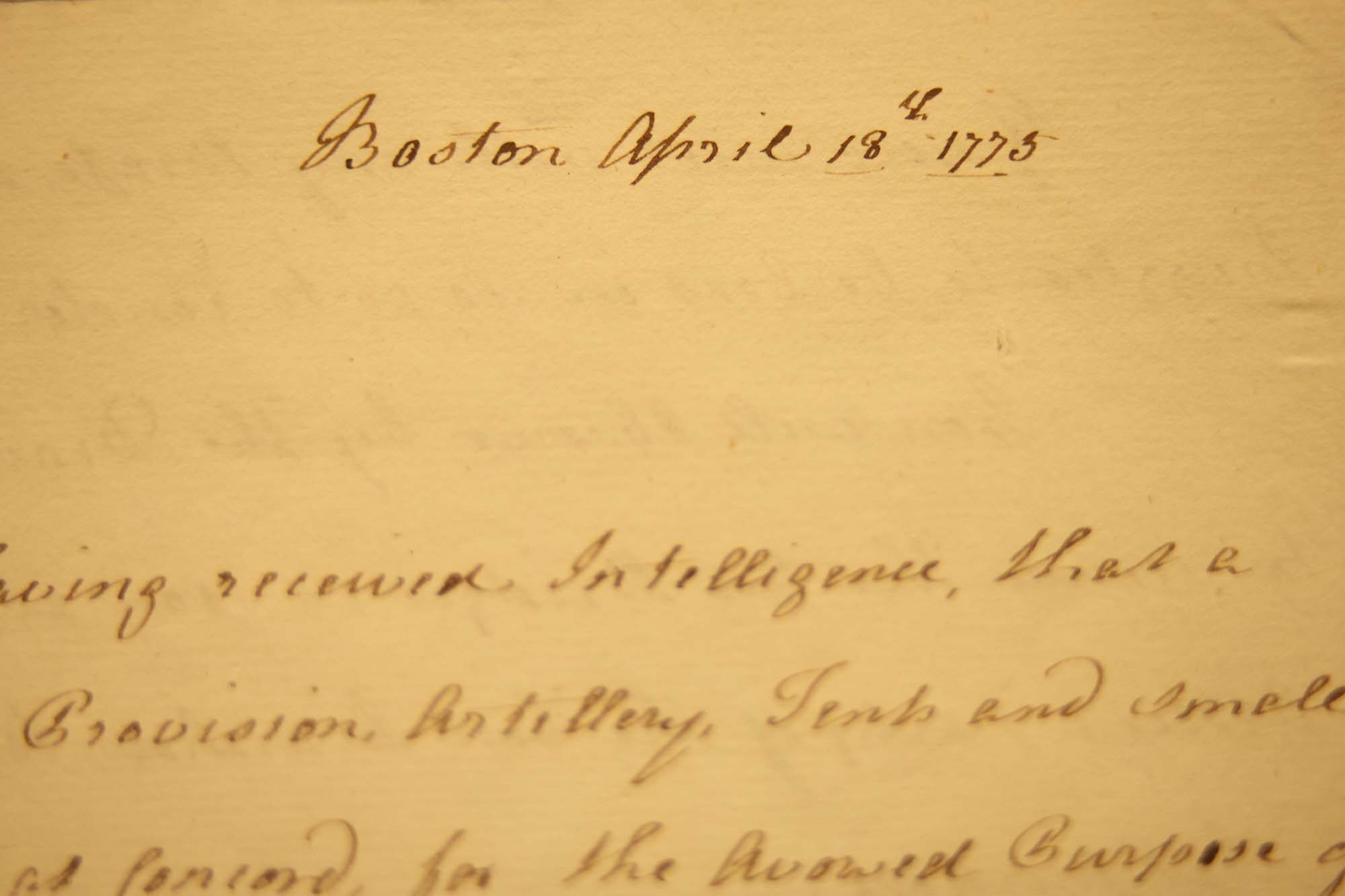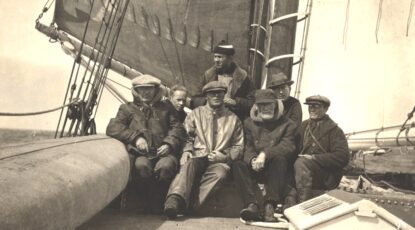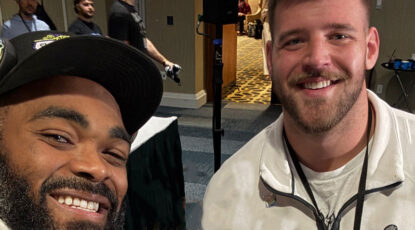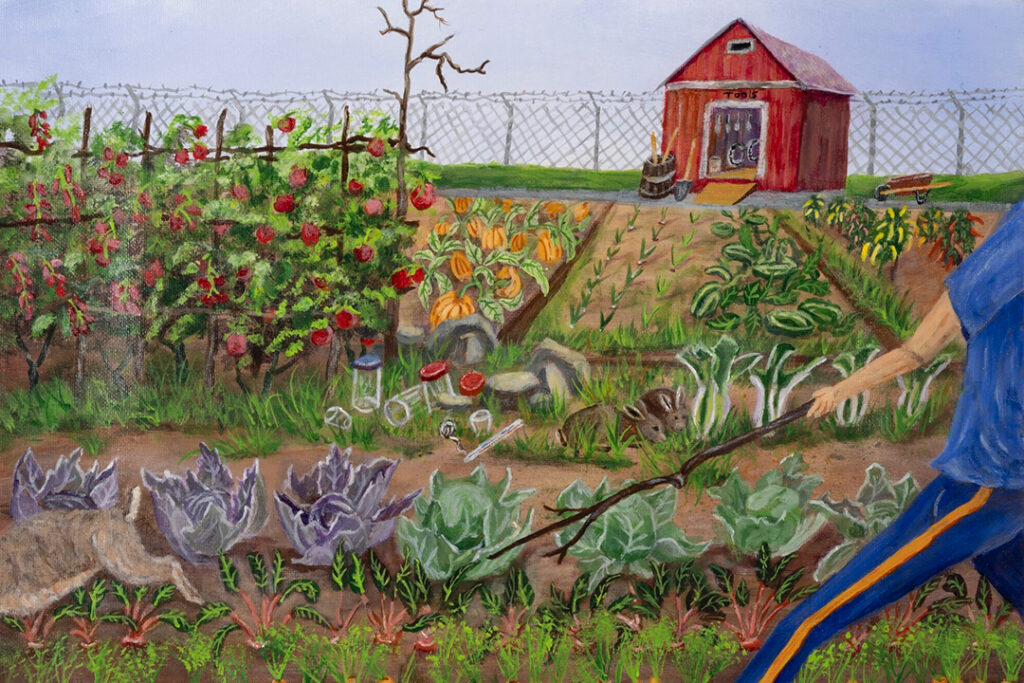The order that launched the Revolutionary War, 250 years later

The ‘shot heard ’round the world’ can be traced to one manuscript containing the orders for the Concord Expedition on April 18, 1775. The quill-to-paper draft orders, penned by British Army officer Thomas Gage, sparked the Battle at Lexington and Concord the following day. U-M’s Clements Library holds the document.
-
‘Music is about people — it’s not about music’
Musician Branford Marsalis spoke at the Ford School of Public Policy between a pair of gigs in Ann Arbor this week, noting he seeks harmony between art and activism. While he is adamant his job is ‘to make music,’ he understands the power it can possess beyond the notes.
-
How Michigan planted its flag on Greenland — or tried to
When U-M researcher William Herbert Hobbs traveled to Greenland in the 1920s, he set off on a spree with a map and a pencil, planting Michigan-connected names on practically any feature of the landscape that caught his eye.
-
Bridging gaps in rural health care with AI-powered mobile clinics
It’s like “Knight Rider” meets “Northern Exposure” in a future where AI-equipped mobile clinics help guide medical generalists through unfamiliar diagnoses and procedures. The goal is to widen access to quality health care for rural populations.
-
Consumer sentiment down amid disagreements on new government policies
While Americans’ assessments of personal finances inched up for the fifth consecutive month in January, both the short- and long-run business outlook weakened, says economist Joanne Hsu, director of the University of Michigan’s Surveys of Consumers.
-
From the Big House to the Big Game
Wolverines Brandon Graham and Trevor Keegan recently helped their Philadelphia Eagles upset fellow Wolverine Mike Danna and his Kansas City Chiefs in Super Bowl LIX. Playing against alumni is thrilling enough, agree the veterans. But winning the Super Bowl with a MIchigan Man on your team delivers an even greater kick, says first-timer Keegan.
-
Listen to your mother—especially if your mother is a climate scientist.
Sierra Petersen, associate professor of earth and environmental sciences, studies what Earth’s climate was like millions of years in the past. She also is a member of Science Moms, a group of mothers who are scientists who study climate change. They hope to make climate change a normal topic of conversation—and therefore one that deserves action and attention.
Columns
-
President's Message
Reaffirming our focus on student access and opportunity
U-M seeks to ensure every student will rise, achieve, and fulfill their dreams. -
Editor's Blog
Peace out
It's a mad, mad, mad, mad world out there. -
Climate Blue
Keeping our focus on climate
As federal support for climate science wanes, Ricky Rood remains hopeful. -
Health Yourself
Are you an ‘ager’ or a ‘youther’?
Why do some people appear younger or older than people born in the same year?
Listen & Subscribe
-

MGo Blue podcasts
Explore the Michigan Athletics series "In the Trenches," "On the Block," and "Conqu'ring Heroes." -

Michigan Ross Podcasts
Check out the series "Business and Society," "Business Beyond Usual," "Working for the Weekend," and "Down to Business." -

Michigan Medicine Podcasts
Hear audio series, news, and stories about the future of health care.
In the news
- USA Today US consumer sentiment and expectations fall again in April as tariff uncertainty continues
- CNN Beyond Ivy League, RFK Jr.'s NIH slashed science funding across states that backed Trump
- Detroit Free Press Inflation is slowing. Wages are up. So why does life feel costly for many Michiganders?
Creativity and connection across prison walls
One of the world’s largest and longest-running exhibitions of incarcerated artists is back with new programming designed to foster connection and deepen public understanding of incarceration in Michigan. The 29th annual Exhibition of Artists in Michigan Prisons, curated by U-M’s Prison Creative Arts Project, showcases 772 artworks by 538 artists incarcerated in 26 state prisons. The Duderstadt Center Gallery on U-M’s North Campus is presenting the artwork through April 1.





















